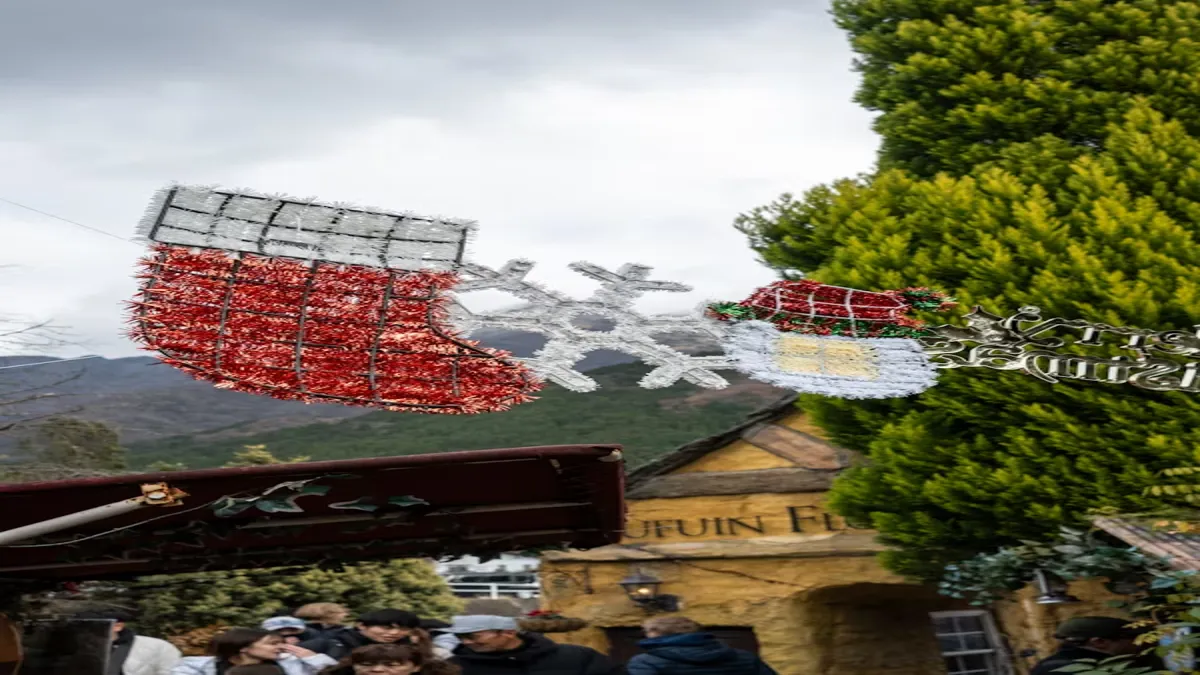Nestled within the Sauerland region of North Rhine-Westphalia, Züschen Winterberg is a village that combines history, culture, and seasonal recreation into a compelling destination. For many travelers, the name Winterberg immediately evokes images of snow-covered slopes, alpine chalets, and a bustling winter sports scene. Yet, Züschen, as a distinct district within Winterberg, offers its own narrative—a balance of tranquility, tradition, and modern leisure opportunities. Within the first few moments of arriving, visitors sense a village that has preserved its identity while seamlessly embracing tourism. For anyone searching for what defines Züschen Winterberg—whether it’s skiing trails, historical charm, cultural traditions, or natural landscapes—this article will offer a clear, thorough, and updated picture.
Origins and Historical Roots
The history of Züschen stretches back centuries, with records of settlement dating to medieval times. Its location along trade and pilgrimage routes ensured it remained connected, even as it preserved local traditions. While Winterberg grew into a recognized sports hub, Züschen maintained a quieter, more community-driven character. Churches and half-timbered houses reveal architectural continuity, showing how local crafts influenced the region’s development. In oral traditions, stories of farming families and mountain resilience are still shared, underscoring a cultural memory that values endurance and continuity.
“Our heritage is not only in the stones of old houses but in the spirit of our people,” said one longtime resident during a cultural preservation initiative.
The Winter Sports Connection
Züschen is inseparable from the winter sports identity of the wider Winterberg region. Unlike Winterberg’s central ski resort, Züschen provides a calmer alternative with its own ski area known as the “Snow World Züschen.” The slopes here attract families and learners, offering gentler gradients and a less commercialized environment. Snowboarding, sledding, and cross-country skiing are prominent, making it a family-friendly choice. While Winterberg often draws large tourist volumes, Züschen appeals to those who prefer fewer crowds without compromising on snow quality or facilities.
Hiking and Outdoor Experiences
Even outside the winter months, Züschen retains its charm. Its trails connect into the greater Sauerland hiking networks, offering routes through forests, meadows, and mountain ridges. The “Kahler Asten”, a well-known peak nearby, provides sweeping views of the region. During spring and summer, wildflowers dominate the landscape, turning ski slopes into vibrant meadows. Cyclists also find trails suited to both casual rides and mountain biking challenges.
Bullet highlights of outdoor activities in Züschen Winterberg include:
- Family-oriented ski slopes and sledding tracks in winter
- Hiking routes leading to panoramic Sauerland viewpoints
- Mountain biking trails of varying difficulty levels
- Nature walks focusing on flora, fauna, and geological features
Cultural Identity and Traditions
Festivals are central to Züschen’s cultural life. Local music clubs, volunteer fire brigades, and church groups play important roles in organizing events that strengthen community ties. Seasonal festivals, especially Schützenfest, remain deeply cherished. These gatherings combine music, traditional dress, and community parades.
“When visitors join our festivals, they do not remain strangers for long,” shared a local organizer. This statement underscores how tourism here is not only about leisure but also about shared cultural moments.
Modern Tourism and Hospitality
While Züschen values tradition, it also adapts to modern demands. Guesthouses and vacation apartments blend rustic style with modern amenities. Many family-run accommodations emphasize sustainability, incorporating solar energy and regional produce. Restaurants highlight Sauerland specialties, from hearty stews to game dishes. For international visitors, menus often combine local flavors with European classics.
Table: Overview of Züschen Winterberg Tourism
| Category | Highlights |
|---|---|
| Accommodation | Family-run guesthouses, chalets, apartments with modern amenities |
| Winter Activities | Snow World Züschen ski area, sledding, snowboarding, cross-country skiing |
| Summer Activities | Hiking, biking, nature walks, mountain climbing |
| Culture | Schützenfest, traditional music, community parades, local crafts |
| Cuisine | Sauerland stews, local bread, game dishes, German beers |
| Accessibility | Road connections to Winterberg center, nearby train stations, bus services |
Seasonal Rhythms in Züschen
The village adapts its rhythm with the seasons. In winter, skiing and snow activities dominate. Spring brings quieter charm, with hikers beginning to fill the paths. Summer offers peak hiking, cycling, and cultural festivals. Autumn is a time of golden forests, harvest traditions, and fewer tourists. This cycle ensures that Züschen never becomes a static tourist spot but one that continually evolves throughout the year.
The Local Economy
Tourism is central, but agriculture and crafts still hold significance. Small farms continue to produce dairy and meat for local consumption, while artisans preserve woodcraft traditions. Guesthouses often incorporate these products, ensuring visitors experience authenticity. Balancing tourism with sustainability remains a consistent discussion point.
Sustainability and Future Outlook
There has been a conscious move towards eco-friendly tourism in Züschen Winterberg. Renewable energy use in accommodations, waste management strategies, and preservation of hiking trails are priorities. Local leaders argue that preserving the environment is essential not only for residents but also for ensuring the area remains attractive for future generations of visitors.
“If our forests lose their health, we lose our heart,” remarked a community representative during a recent ecological forum.
Why Züschen Stands Apart
While Winterberg itself is known across Germany for its ski resorts, Züschen offers something distinct: authenticity without overwhelming scale. Visitors find here a community-driven atmosphere, where traditions are intact and natural beauty is accessible without excess commercialization. This makes Züschen particularly appealing for families, cultural travelers, and those seeking quieter alternatives.
Travel Practicalities
Reaching Züschen is straightforward, with roads linking it directly to Winterberg and beyond. Public buses connect the village with train stations in nearby towns. For international visitors, airports in Dortmund and Paderborn are commonly used gateways.
Educational and Informational Tourism
Züschen is also expanding its profile by incorporating educational tourism. Nature walks guided by local experts highlight biodiversity, while historical tours explain how the community has evolved. Schools and universities often collaborate with local institutions for study programs focused on environmental science and rural development.
Züschen in Numbers
To better understand Züschen Winterberg, consider the following approximate figures:
- Population: ~1,000 residents
- Altitude: 500–600 meters above sea level
- Average annual snowfall: 80–100 days with snow cover
- Distance to Winterberg center: ~8 kilometers
- Ski slopes in Snow World Züschen: ~7 kilometers of trails
Visitor Testimonials
Travelers often emphasize the balance of activity and peace found in Züschen. One visitor described it as, “A place where you can ski in the morning, hike in the afternoon, and join a village celebration in the evening.” Such feedback illustrates the multi-faceted nature of the village.
Conclusion
Züschen Winterberg is not just a winter sports destination but a community with layered identities: historic, cultural, recreational, and sustainable. It offers an authentic alternative within a popular region, blending the charm of a village with the facilities of a resort area. For travelers, families, and cultural seekers, Züschen provides an experience that is both refreshing and grounded.
FAQs
Q1: What makes Züschen different from Winterberg’s main ski resort?
A: Züschen offers fewer crowds, family-friendly slopes, and a stronger focus on tradition and community-driven tourism.
Q2: When is the best time to visit Züschen Winterberg?
A: Winter for skiing, summer for hiking and festivals. Autumn offers quieter charm and colorful landscapes.
Q3: Are there cultural events unique to Züschen?
A: Yes, the Schützenfest and local music festivals are integral to its cultural identity.
Q4: How accessible is Züschen for international travelers?
A: Easily reached via airports in Dortmund or Paderborn, followed by train and bus connections.
Q5: Is Züschen suitable for eco-conscious travelers?
A: Absolutely. Many accommodations integrate sustainability practices, and the community prioritizes environmental preservation.











